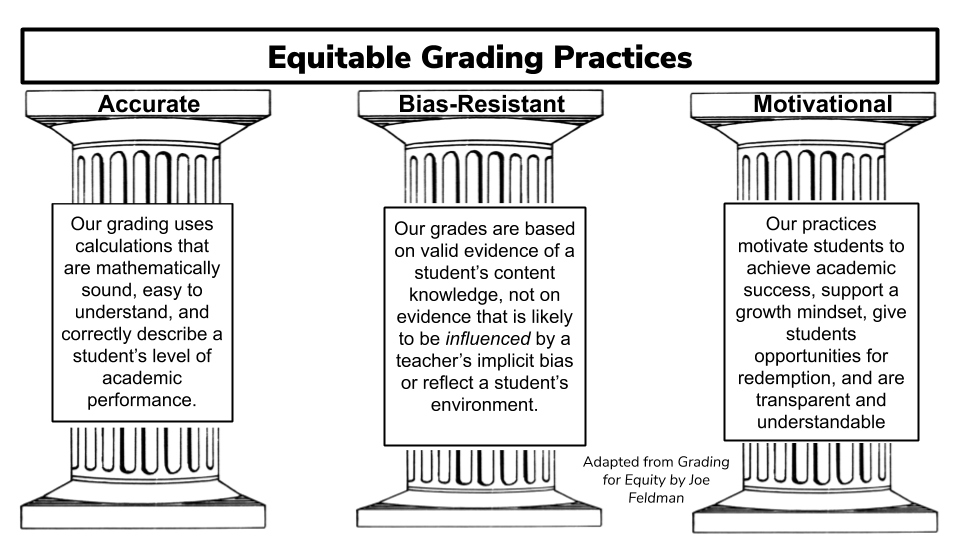Equitable Grading is a three-part course, 45-hour series. In this 15-hour mini-course, K-12 educators will analyze the intent of their grading philosophy and its impact on student learning. When educators unpack and understand how deeply held beliefs, attitudes and methods impact their educational practices and students' well-being, only then can they begin to bridge the gap between current methods and future equity practices. In this course, students will evaluate their grading philosophies and explore equitable grading concepts through the introduction of the three pillars: Accurate, Bias Resistant, and Motivation outlined by Feldman (2019) in Grading for Equity. This high-level overview on equitable grading will empower K-12 educators in this course to make immediate changes to their classroom practices as it relates to “Accurate, Bias Resistant, and Motivation.”

Equitable Grading is a three-part course, 45-hour series. In this 15-hour mini-course, K-12 educators will analyze the intent of their grading philosophy and its impact on student learning. When educators unpack and understand how deeply held beliefs, attitudes and methods impact their educational practices and students' well-being, only then can they begin to bridge the gap between current methods and future equity practices. In this course, students will evaluate their grading philosophies and explore equitable grading concepts through the introduction of the three pillars: Accurate, Bias Resistant, and Motivation outlined by Feldman (2019) in Grading for Equity. This high-level overview on equitable grading will empower K-12 educators in this course to make immediate changes to their classroom practices as it relates to “Accurate, Bias Resistant, and Motivation.”
